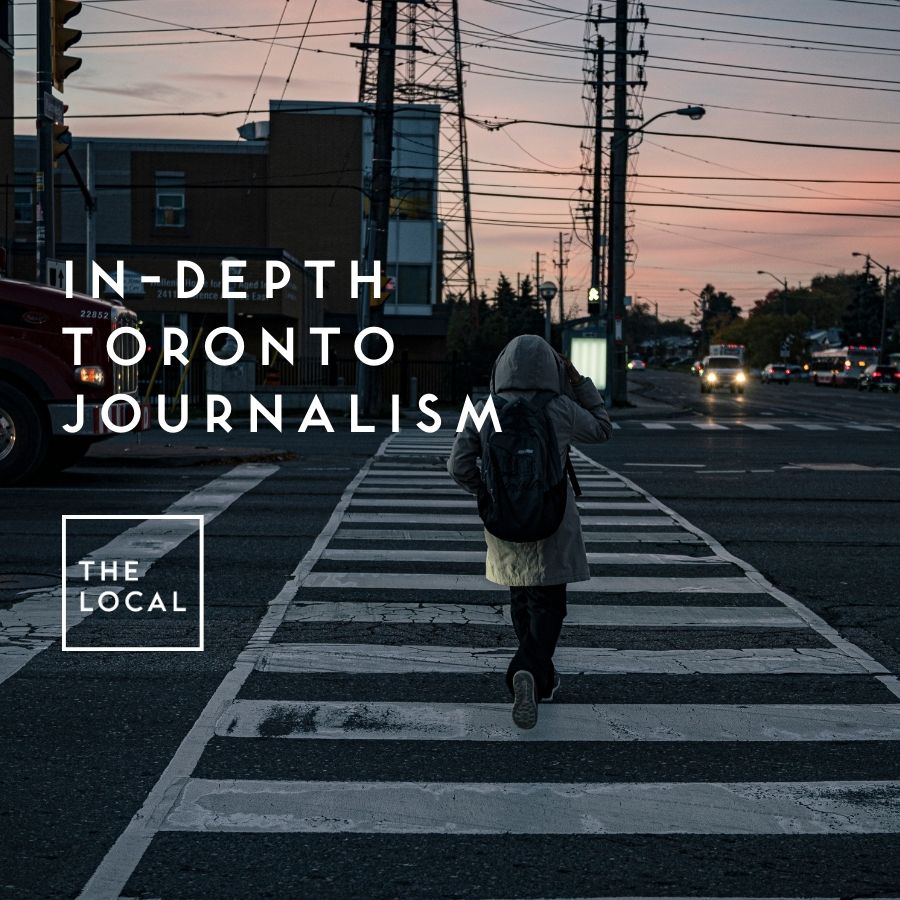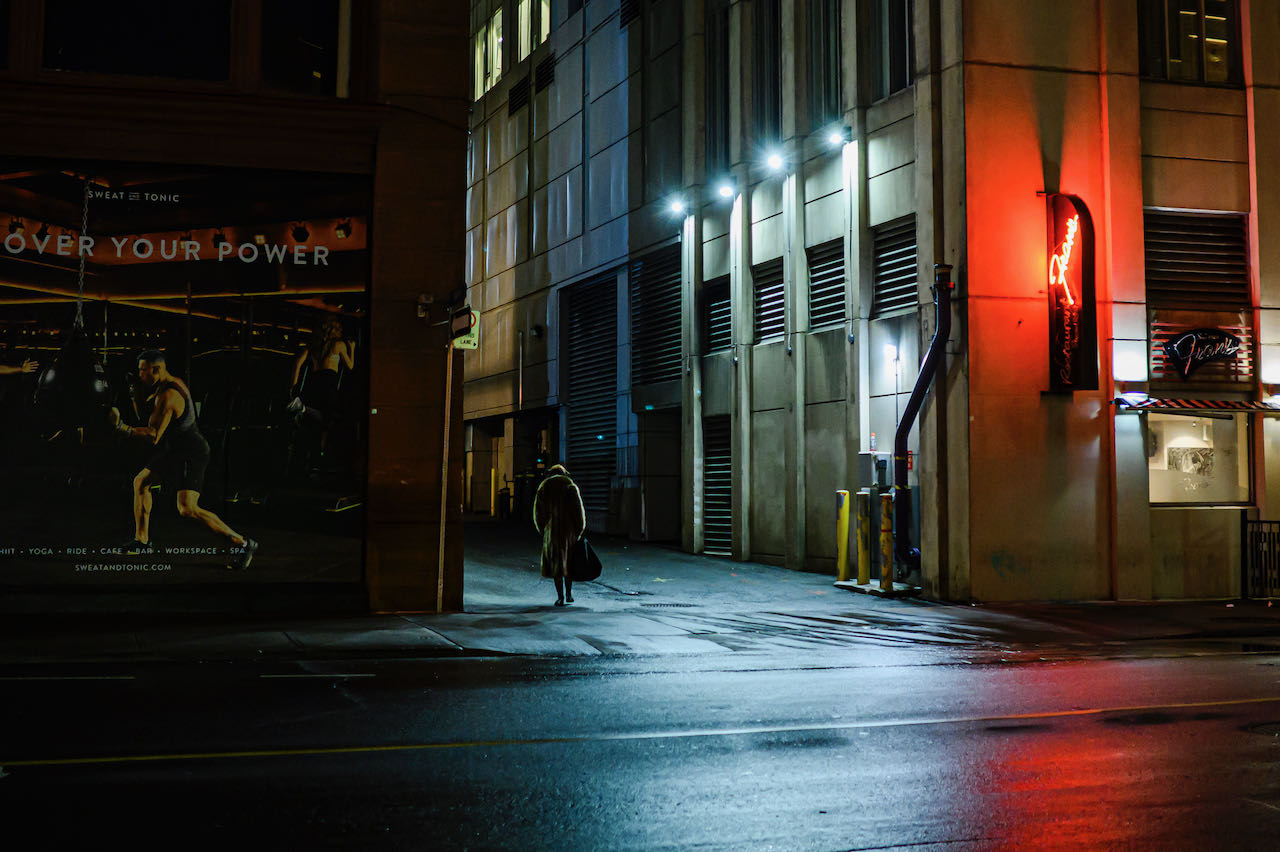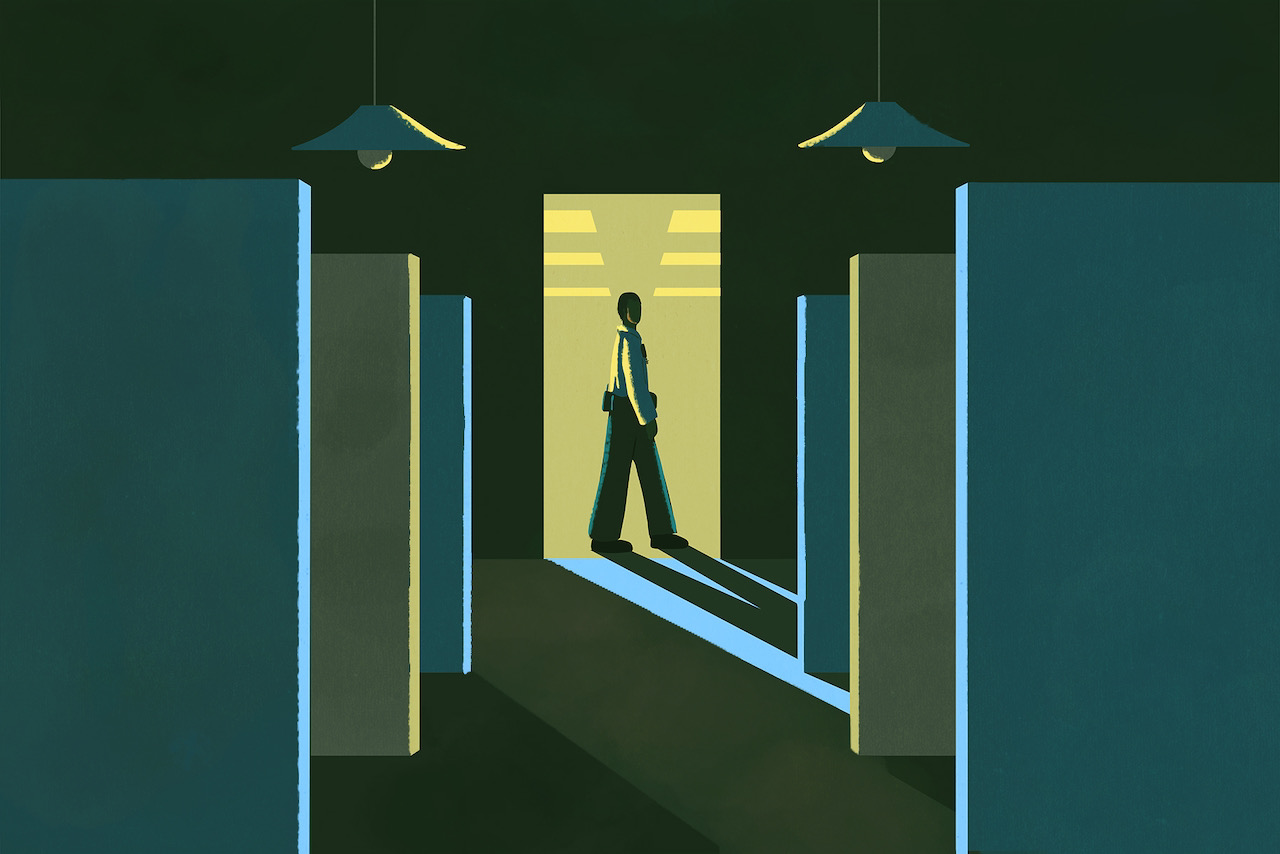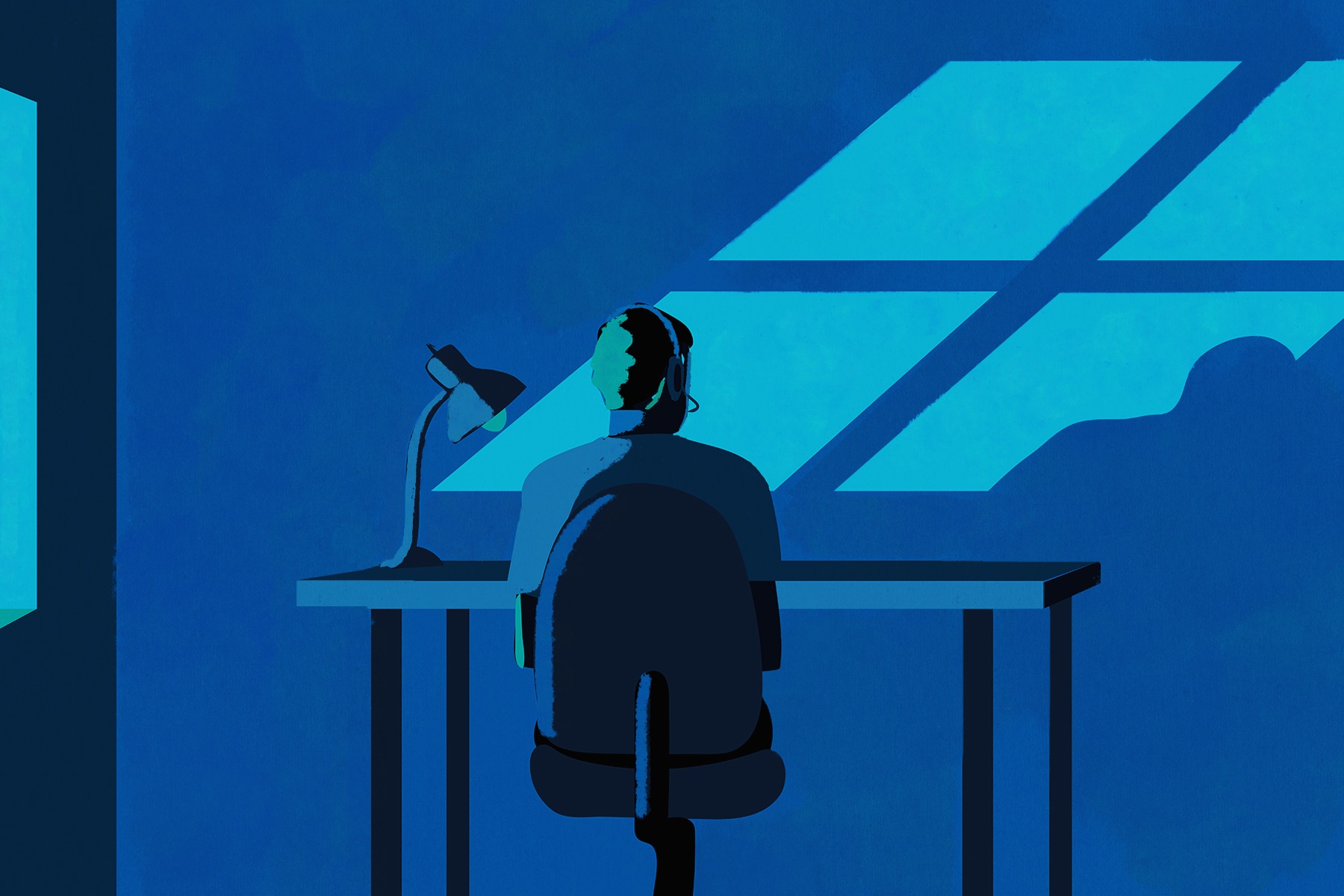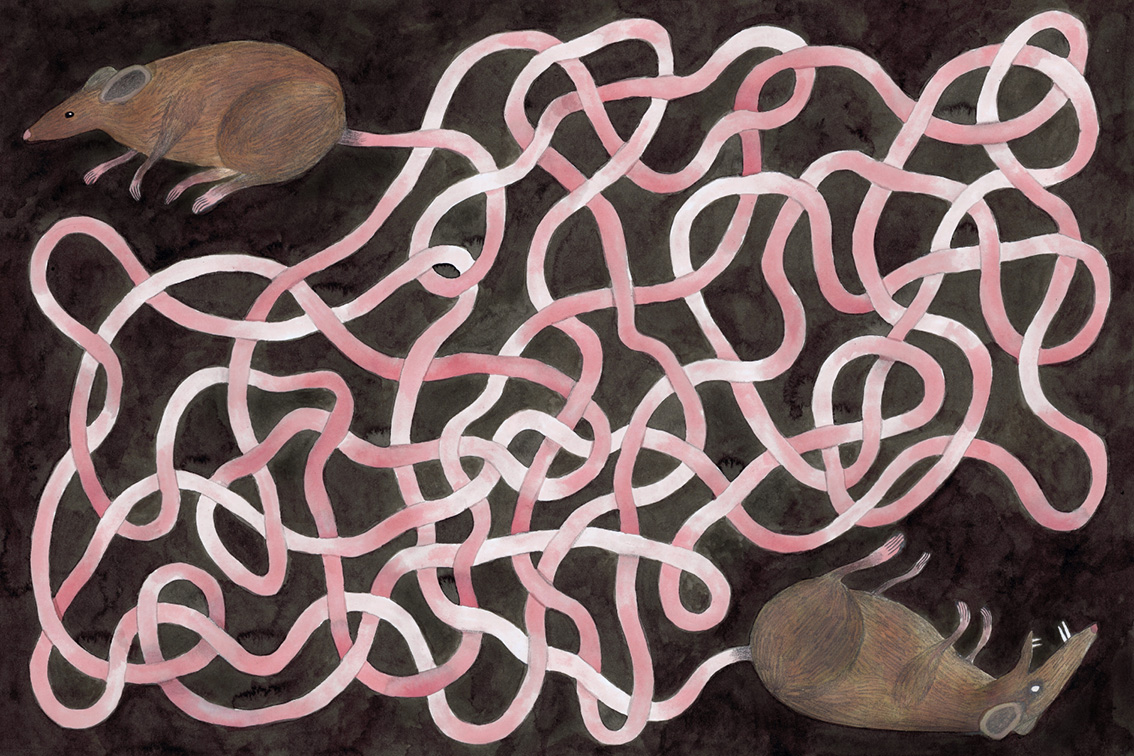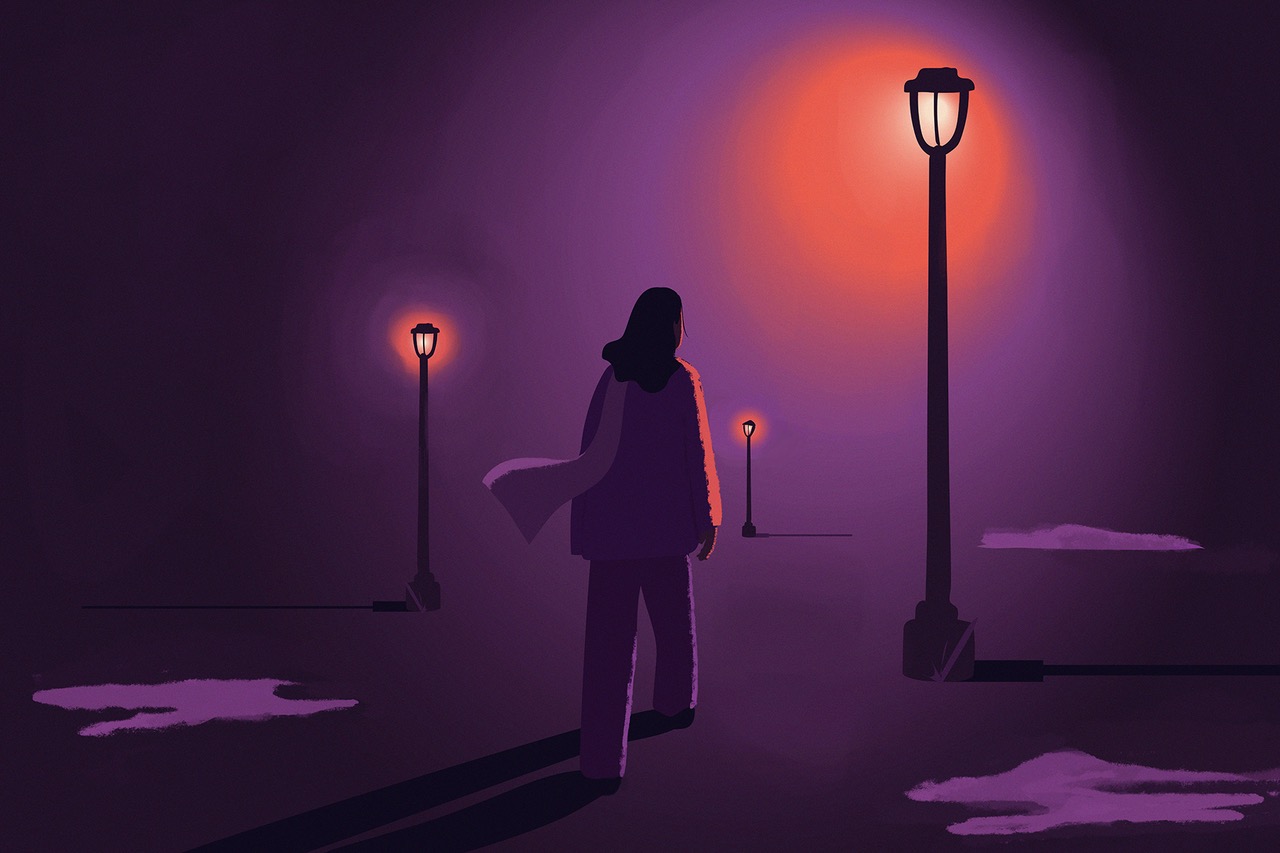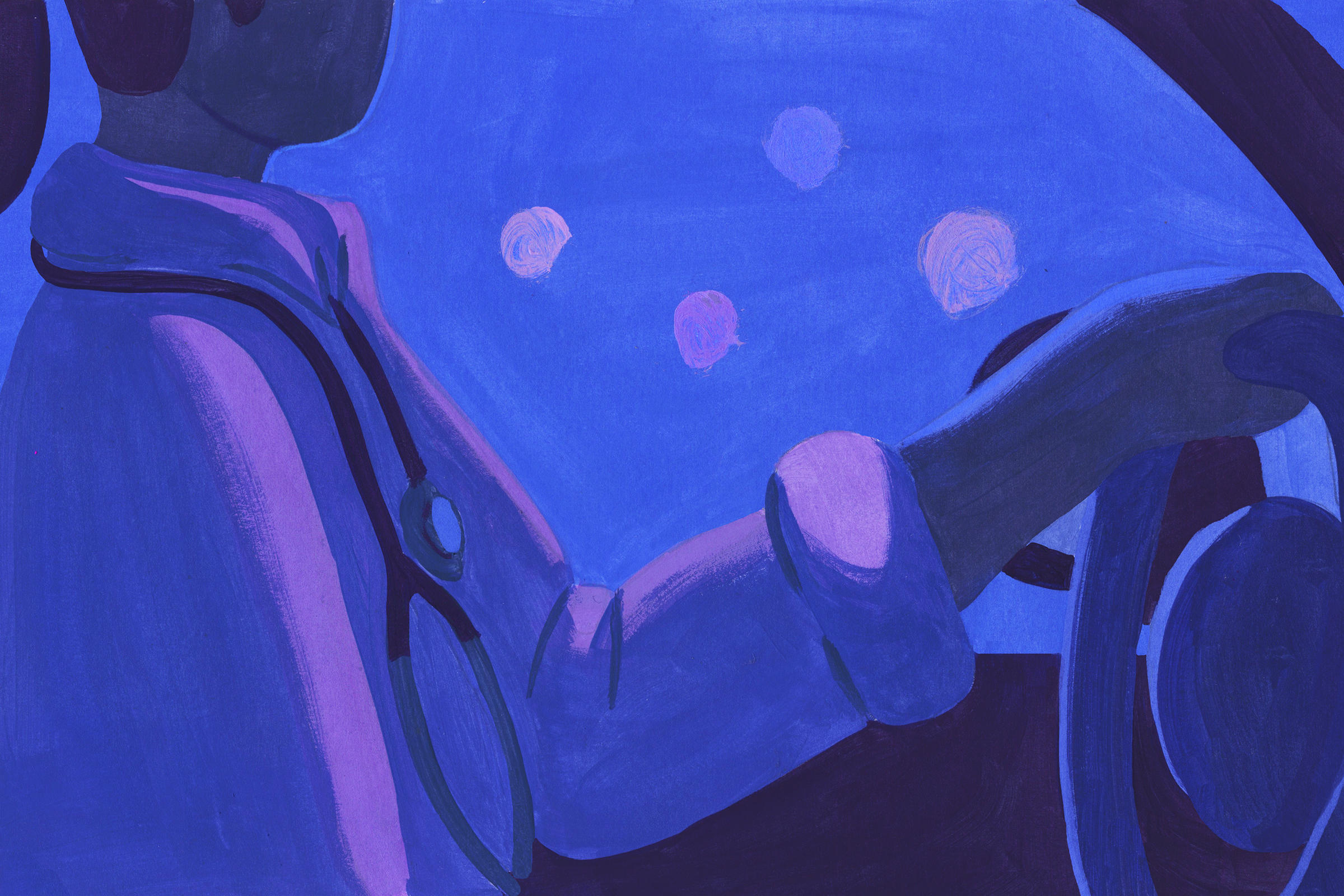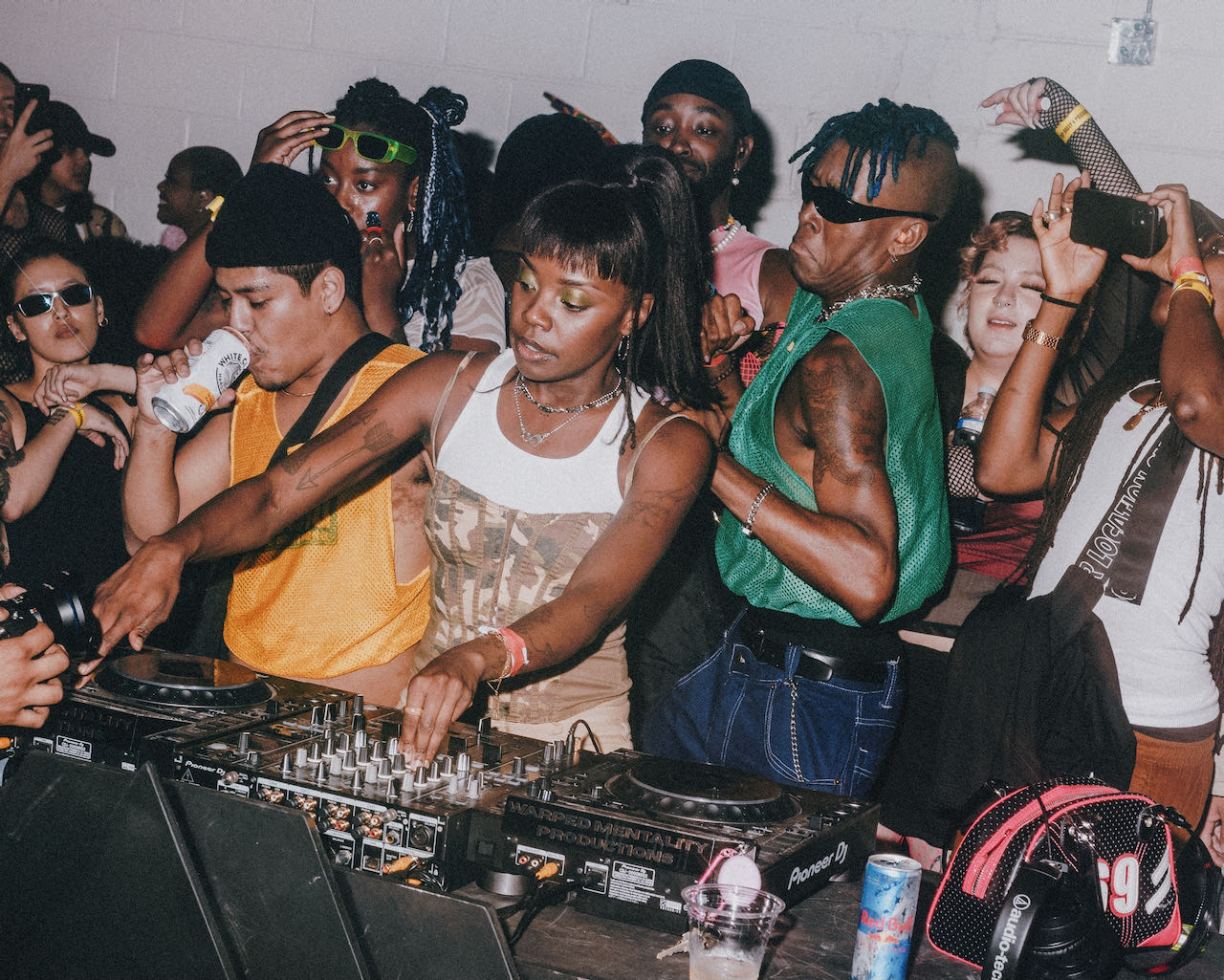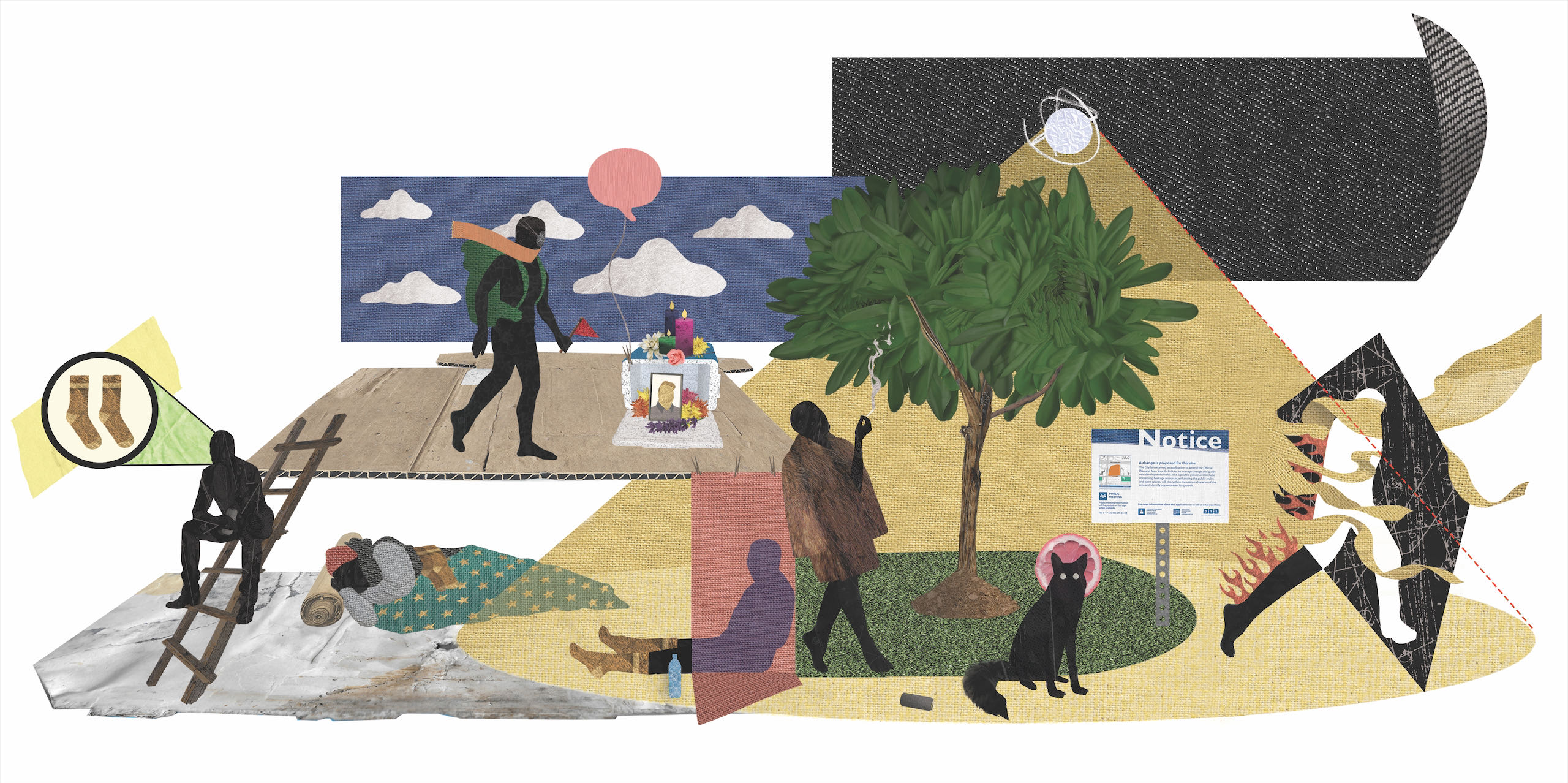

This story was originally published by our friends at the West End Phoenix as part of their “After Dark” issue, released this month. To read more, visit www.westendphoenix.com.
____
Photographer Lisa MacIntosh was a street outreach worker for years. Here she shares stories from the journal she kept at the time, chronicling intimate moments shared with the people she served.
My backpack is bursting at the seams: socks, water bottles, sandwiches, power bars. My ears, eyes and heart are open. I’m ready.
Will I see Raymond tonight?
11:00 p.m., St. James Cathedral Grounds
I find Brian* and John sitting under a tree, drinking tall boys. I ask if I may join them. We’re all at eye level, where trust is formed. John, a regular, has been calling the street home for almost 20 years. He’s had his share of run-ins with miserable cops and feisty comrades in overrun shelters. “I’m happiest under a blanket of stars,” he tells me.
John was the first person Brian met there. New to this patch of lawn, Brian was anxious to share his story. Married with two grown children, Brian was hopelessly unhappy. He lived in a beautiful house, with a lovely wife, loyal dog, well-tailored clothing and an adequate job. He told me of the terror he saw when he stared into the mirror: “I felt such deep sadness; I just couldn’t shake it.” One morning Brian got dressed, put on his favourite pair of designer glasses and a diamond pinky ring, walked out his front door and didn’t look back. “I’m the happiest I’ve ever been.”
Some people may find that unfathomable. What breaks a person’s spirit to bring about such impossible change? Brian asked if I was shocked; most people were. I joked and told him that I’ve pretty much heard it all. Brian turned to me and with sincerity asked how I got here. What was my story? I pointed to the office building, directly across the street. My advertising life unfolded and spiralled there. It was also where I got sober. I remember staring out my office window, wondering how I didn’t end up calling the park or the street home. Some days it felt so close.
12:00 a.m., City Hall
There aren’t many people here tonight but there is one cardboard enclosure. The wind remains at bay. I find Bridget curled up inside her makeshift home for the evening. The bright lights from the offices create a feeling of safety and protection. Tonight she’s wearing an enormous fur coat, a gift from the dumpster gods, and akin to winning the lottery. The evening is chilly, but not fur-coat chilly. “I have to hang onto this for the winter; it will save me.” I’m invited to sit on a stack of itchy blankets. Bridget always offers me a drink and I always remind her that I’m sober, just for today. She pulls out a baggie of tobacco and rolls a tight, precise smoke; her fingers are stained in that unmistakable nicotine orange.
I love hands; they tell a story. Bridget’s have seen freezing cold nights and blistering sun, and have held onto belongings with a fierce grip. At one time they held a baby, but that was in another lifetime. “I’m happy here. I have friends, people that care about me. I eat every day and I’m thankful for places that welcome us. Not everyone does.” She pulls me in for a deep hug, my face buried in her fur coat.
1:00 a.m., Gardiner Expressway Underpass
I see Mark up ahead, waving frantically and pointing to his new T-shirt, the word “clown” in black and white lettering. Mark has lived under the highway for years. Everyone knows him; he’s often compared to the Pied Piper. A small man with a larger-than-life personality, the wildest eyebrows, and more teeth than his mouth can accommodate. He has no idea how old he is. Mark was my reminder to maintain boundaries, my biggest challenge when I first met him years earlier. My instinct was to swoop in and find him housing. The thing is, Mark didn’t need rescuing. He had “the sweetest spot,” as he described it, tucked away from the weather, kept warm by scrap pink insulation from nearby construction sites, candles, thrifted army blankets and an old beat-up blue Coleman cooler. “What else do I need?”
Twenty years earlier, Mark was a long-distance truck driver who had a run-in with a moose on a dark highway out west. He suffered a traumatic brain injury and lost track of his former life. “I live here now. I look after the new kids. They know to find me.” My greatest memory of our time together was sharing a Thanksgiving dinner, a big meal with all the fixings. We sat at the side of the highway, bums on the ground, our Tupperware containers on a cardboard box. Cars raced past us. Some faces inside them looked shocked, some just smiled. “Happy Thanksgiving, friend. Cheers to us!”
Mark was eventually housed and did not adjust to four walls, a box spring and mattress, and running water. There was a discomfort there, making him anxious and manic. He spent his nights wandering the street. Mark became ill and passed away that fall, alone in a hospital. The news was heartbreaking.
2:00 a.m., Queen Street West at Bathurst
A flurry of leather jackets and well-worn Dr. Martens boots. Tonight I counted eight dogs. Four- and sometimes three-legged friends help to ease anxiety, loneliness, and depression. A gift. For some, it’s the only family they have. This stretch is usually occupied by youth. It’s a different feeling; gaining trust is not an easy task. Bravado coupled with angst, with an interesting mix of camaraderie. Most of the people I spoke with make their home in a wooded area, not far from our West End location. There is safety in numbers; they are part of a community.
My backpack is still heavy with supplies. Everyone is thrilled to see socks. Socks are golden. I talk with a small group and ask why no one has sought shelter for the night. Shelters are not the answer, not a safe place, not somewhere you can rest. If you do find a shelter, chances are they are over-capacity. There is constant noise, people yelling, people trying to steal your new socks! Bed bugs, head lice, chronic mental illness. The list is long. Going home is not the answer either. Home is often a complicated place. Everyone has their own reasons for fleeing, all absolutely legitimate. When there are no options, you find shelter where you can.
Queen Street was always where I talked about options: employment, housing, ID clinics, reconnecting, doctors visits. Queen Street reminds me to ask questions, be an empath, search for answers and demand better from this city.
2:00 a.m., No Sign of Raymond
Raymond is my cousin. We were born nine months apart, fighting for our place in the ranks among six older kids. Chinatown was home then; Moss Park was home later. Raymond was troubled as a teenager, a fire starter. Eighteen brought a diagnosis of schizophrenia. Nineteen brought the death of his beloved mother, a fate that proved more than his mind could comprehend. His defender, protector, and confidante was gone. Dressed for her funeral in a wrinkled Salvation Army suit, with unwashed hair and vacant eyes, he rocked back and forth in his seat. When the minister closed the “good book,” Raymond walked out the door, never to be seen again.
When I’m on the street, I search; my eyes are always scanning groups of people. I hope to see his face, his eyes hiding behind long, unkempt hair. I hope to reach out and hold his hand. Will I recognize him? Will he remember me?
3:00 a.m., Queen Street Continued
My backpack is lighter. The air is calm and quiet. Doorways are littered with cigarette butts and brimming with huddled men. The stench of urine and whiskey is overpowering. This time of night in the city is muted; people on the edge of sleep, some afraid to close their eyes, others hanging on for one more sunrise. I leave my remaining water bottles on the step and place the last pair of socks on a lap. The patch on his shirt says Joseph; he opens one eye, smiles and drifts back into slumber.
As I’m walking back to our home base I meet up with a young woman named Carrie, propped up against a storefront. Her darkly tanned, dirty hands squeeze a tattered Tim Hortons cup. I ask if I can sit, have a chat. Edgy from no sleep and no money for any vices, she is feeling rough this early morning. As our time together unfolds she tells me that her mother threw her out, for a myriad of reasons. She misses her room, misses brushing her teeth, misses her mom. Carrie wants to go home but the fear of asking is so great that it keeps her right here on the concrete. “What if I fail again? What if my mom hits me again?”
Sometimes I feel like I’m hearing my own story.
Tonight, Carrie is the first person to ask for help. I share contact numbers, agencies, and good people who can support her. Good people who will listen. She is thankful. I am hopeful. That is the first and last time I see Carrie.
4:00 a.m., Time to Reflect
Journals come out and I put pen to paper, old school. I want to remember their stories, the hands, the worn faces, the searching eyes. I want to remember hardships, but also joy and happiness. I want to relive deep, meaningful hugs and conversations. I want to remember promises of taking next steps and good intentions. I have no expectations, but I always carry hope with me.
5:00 a.m., Homeward Bound
My body is tired, my brain is racing. It takes a moment to slow down, to compartmentalize the night, to not let it sit too heavily on my heart. I’ll replay all of it until my next visit.
Maybe I’ll see Raymond.
*Names have been changed for privacy.
